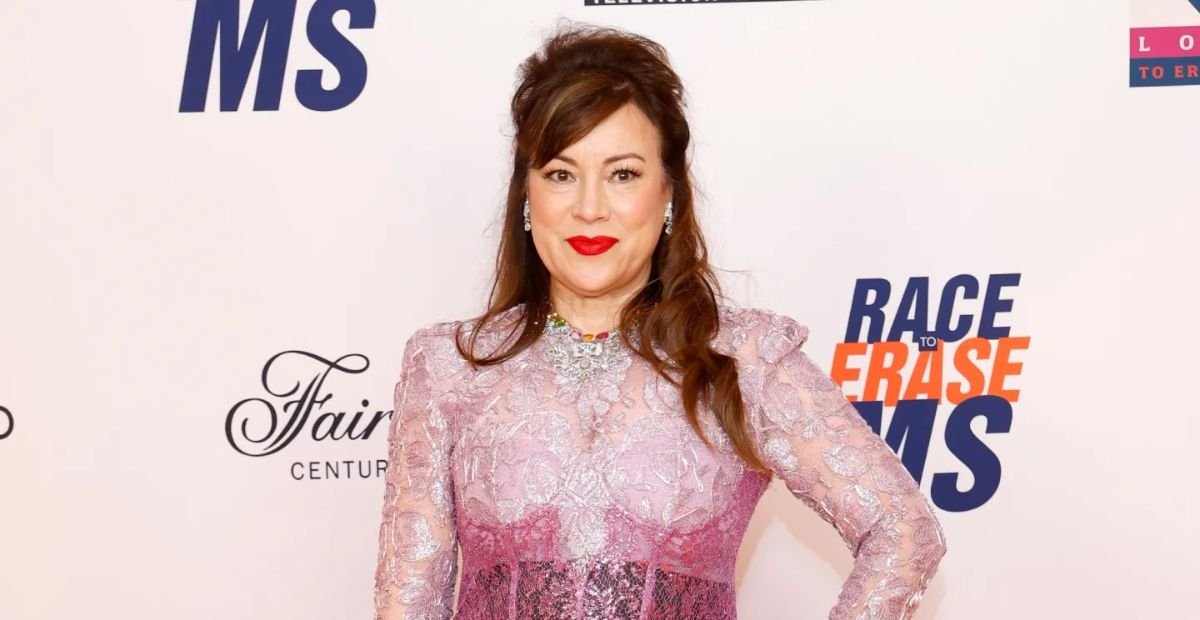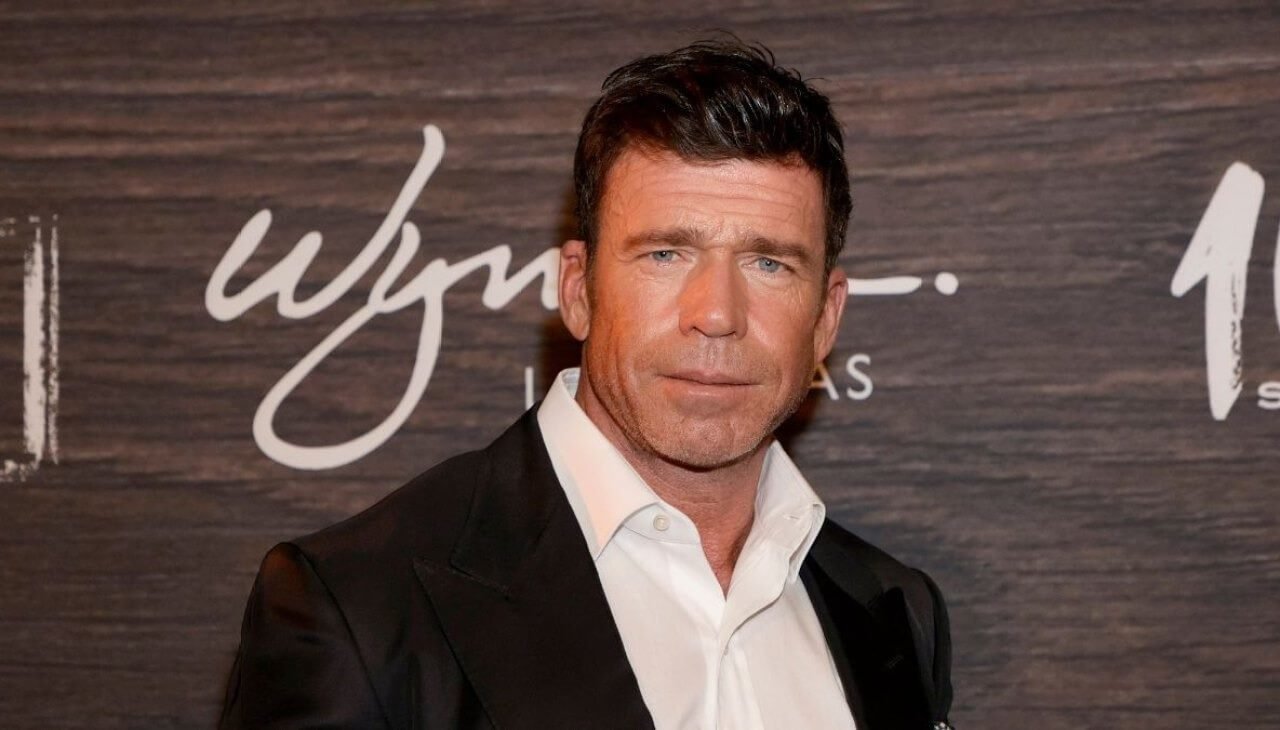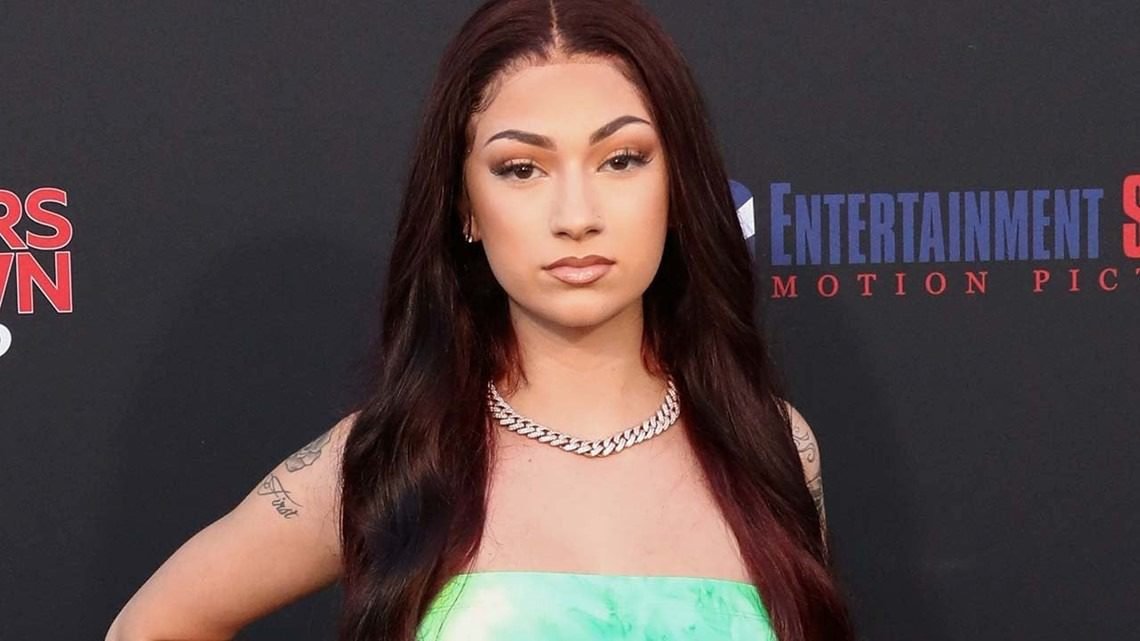Taylor Swift, the American singer and songwriter, achieved billionaire status in late May 2024 with a net worth of $1.5 billion. Her financial empire rests on touring revenue, music catalog value, publishing, merchandise, endorsements, and real estate. She stands as the wealthiest female musician and among the best-selling music artists of all time.
The producer built this fortune through rare blend strategies beyond typical artist paths. Her $600 million earnings as the highest-grossing live music artist showcase unprecedented commercial dominance. This wealth positions her halfway through transforming how musicians control film, catalog ownership, and long-term profits in the music industry.
Biography
| Attribute | Details |
| Full Name | Taylor Alison Swift |
| Date of Birth | December 13, 1989 |
| Age (2025) | 35 years |
| Birthplace | Reading, Pennsylvania, United States |
| Nationality | American |
| Profession | Singer, Songwriter, Actress, Businesswoman |
| Genres | Pop, Country, Rock, Folk, Alternative |
| Years Active | 2006 – Present |
| Famous For | Storytelling through music, record-breaking albums, global tours |
| Parents | Andrea Gardner Swift (mother), Scott Kingsley Swift (father) |
| Siblings | Austin Swift (younger brother, actor) |
| Education | Wyomissing Area Junior/Senior High School (dropped out for music career) |
| Marital Status | engaged to Kansas City Chiefs tight end Travis Kelce |
| Height | 5 ft 11 in (180 cm) |
| Net Worth (2025) | $1.6 Billion |
| Major Awards | 14 Grammy Awards, 40 American Music Awards, 23 Billboard Music Awards |
| Notable Works | Fearless, 1989, Red, Reputation, Folklore, Evermore, Midnights |
| Philanthropy | Education, disaster relief, LGBTQ+ rights, women empowerment |
| Upcoming Projects | Continuation of The Eras Tour and new music releases |
Early Life
- Born Dec 13, 1989, in West Reading, Pennsylvania.
- Parents: Scott and Andrea Swift
- She has a younger brother, Austin Swift
- Named after musician James Taylor.
- Loved music, poetry, and theatre from a young age.
- Visited Nashville at 9 to pursue country music.
- Learned guitar at 12; wrote first song “Lucky You.”
- Family moved to Hendersonville, Tennessee for her career.
- Signed early RCA development deal at 13.
- Known for determination and songwriting talent early on.
Born into a family where business acumen mattered, her childhood experiences shaped authentic songwriting abilities that would later define success. Her teenage experiences weren’t ordinary; they involved observing how artistic ownership disputes affected musicians around her. Personal experiences during formative years taught valuable lessons about artists’ rights and maintaining control. She witnessed firsthand how media scrutiny could transform public image overnight. These early observations planted seeds for future advocacy work. Her upbringing emphasized philanthropy and giving back to communities. Environmental consciousness was discussed at family dinners regularly.
The narrative style she’d later perfect began forming through journaling about daily life. Even music documentaries she watched as a teen influenced her literary approach to storytelling. Understanding streaming services and artist compensation became important topics before fame arrived. Her family encouraged exploring indie folk and various musical styles beyond mainstream radio. Early mentors stressed the importance of mature decision-making in the industry. She learned that artistic identity required protection and careful cultivation. These foundational years built resilience against future career challenges and public feuds.
Career Overview
- Early Interest: Musical theatre at Berks Youth Theatre Academy.
- Transition to Country Music: Began sending demo tapes to Nashville at age 9.
- Songwriting Inspiration: Converted rejections into drive.
- Learned Guitar: At age 12, from a computer repairman and local musician.
- First Original Song: “Lucky You”.
- Family Relocation: Moved to Hendersonville, Tennessee for career purposes.
- Early Manager: Dan Dymtrow, who secured modeling & music gigs.
- Breakthrough Deal: Artist development contract with RCA Records at age 13.
- Rise to Fame: Became the richest female musician & highest-grossing live act.
Taylor Alison Swift, born December 13, 1989 in West Reading, Pennsylvania, transformed from Christmas tree farm kid to billionaire through sheer determination. Her parents, Scott and Andrea, watched their daughter—named after musician James Taylor—dominate musical theatre at Berks Youth Theatre Academy before pivoting toward country music. At nine years old, she traveled to Nashville, Tennessee with her mom, submitting early demo tapes featuring Dolly Parton and The Chicks covers to record labels. Every rejection stung, but focus on songwriting became her weapon.
By 12 years old, she learned to play guitar with help from a computer repairman and local musician, crafting Lucky You as her breakthrough original song. Her family relocated to Hendersonville, Tennessee when her father transferred to Merrill Lynch’s Nashville office, giving her better chance at breaking into the scene. Dan Dymtrow, her music manager, secured a modeling gig for Abercrombie & Fitch’s Rising Stars campaign and placed her original songs on a Maybelline compilation CD. RCA Records offered an artist development deal at 13 years old, launching her journey toward becoming the wealthiest female musician and highest-grossing live music artist.
Net Worth Details
| Category | Highlights |
| Music Ownership | Full masters under Republic Records |
| Tours | $170M (1989), $266M (Reputation) |
| Endorsements | Capital One, Apple Music, Stella McCartney |
| Real Estate | ~$150M portfolio (NYC, RI, Beverly Hills) |
| Key Properties | $30M Rhode Island, $20M+ Tribeca, $70M Beverly Hills |
| Net Worth (2025) | ~$1.6 Billion |
Taylor Swift amassed extraordinary wealth through strategic master recordings ownership and lucrative record deals. Her Republic Records contract secured unprecedented profits from music sales while maintaining complete masters control. The Big Machine Records catalog dispute ultimately strengthened her financial success, as re-recording efforts generated massive revenue. Between June 2015 and June 2016, she earned $170 million from the 1989 world tour. Her Reputation stadium tour grossed $266 million, while endorsements with Capital One, Apple Music, and Stella McCartney added substantial income streams.
Her real estate portfolio represents significant asset diversification, with properties worth approximately $150 million across Nashville, Rhode Island, New York City, and Beverly Hills. The High Watch mansion, purchased for $17.75 million in 2013, now values around $30 million. Her Tribeca penthouse transformed into a 10-bedroom duplex currently worth north of $20 million. Strategic property investments included a Beverly Hills mansion acquired for $25 million in September 2015, today valued at at least $70 million. Combined album sales, touring dominance, merchandise ventures, and calculated real estate acquisitions established her as entertainment’s most financially astute performer.
Upcoming / Recent Projects
| Project | Details | Status |
|---|---|---|
| Album: The Life of a Showgirl | Her 12th studio album. Announced August 12, 2025. | Released October 3, 2025. |
| Film Event: The Official Release Party of a Showgirl | A theatrical film event tied to The Life of a Showgirl. Includes lead single music videos, commentary and behind-the-scenes. | Limited theatrical release announced; some planned rollouts canceled |
| Collaboration with Producers | Working again with Max Martin & Shellback on The Life of a Showgirl. | In production/part of the already released album. |
| Tour in Development | Reports suggest a new tour might be in the early planning stages, possibly for 2026. | Not officially confirmed; speculative from media sources. |
Eras Tour Earnings
| Category | Highlights |
| Tour Revenue | $3.12B by Dec 2024, first tour to hit $1B |
| Records Sold | 200M+ worldwide |
| Achievement | Highest-grossing touring act ever |
| Tie-In | Tortured Poets Department boosted ticket sales |
| Concert Film | Eras Tour doc = top-grossing in history |
The 2023-2024 concert tour became the first to gross $1 billion, and ultimately, cumulative revenue reached $3.12 billion as of December 2024. Notably, this highest-grossing touring act of all time shattered expectations through strategic venue selection. Furthermore, commercial dominance emerged from selling over 200 million records worldwide, which in turn created unprecedented demand for live performances globally.
Meanwhile, the release of The Tortured Poets Department alongside the Eras Tour amplified ticket sales dramatically through cross-promotional synergy. In addition, the accompanying concert film Taylor Swift: The Eras Tour in 2023 became the highest-grossing concert documentary in history, breaking records beyond traditional touring metrics. Ultimately, this ambitious project demonstrated how global pop icon status translates into formidable financial empire building through innovative distribution strategies.
Endorsements And Earnings
Swift secured lucrative deal arrangements spanning merchandise, commercial use licensing, and strategic partnerships that generated substantial revenue streams beyond traditional music ventures. Her marketing executive background influenced calculated brand alignments with companies seeking her massive fanbase reach, while retaining ownership terms that ensured larger cut percentages than industry standards typically allow. These arrangements extended into exclusive streaming rights negotiations where she commanded unprecedented financial terms.
The economic footprint from sponsored partnerships and brand collaborations linked directly to her calculated approach toward business dealings, often promoted through her global platform reach. Her stipulations included maintaining creative control while proceeds flowed through carefully structured agreements that distribute earnings across multiple revenue channels, transforming standard endorsement models into comprehensive financial ecosystems.
Record Deals and Master Recordings
- Lost control of first six albums’ master recordings.
- Masters controversy received significant public attention.
- Reacted with Taylor’s Version re-recordings.
- Released “From the Vault” unreleased tracks to enhance interest.
- Tactic rekindled curiosity in previous albums.
- Emphasized artist ownership and rights concerns.
- Re-recordings redefined industry standards and regained control.
Swift’s journey through label complications began when her first six albums fell into a dispute over ownership. The controversy garnered attention when she couldn’t regain ownership of her original master recordings. This dispute forced her to make bold moves in the music scene.
Her response was revolutionary: releasing Taylor’s Version re-releases that included previously unreleased songs called from the vault. These strategic moves were instrumental in reinvigorating interest in her earlier work while highlighting issues artists face. The re-recording project transformed industry standards and helped her regain creative control.
Real Estate Portfolio

Taylor has built a remarkable property collection, therefore demonstrating astute investment acumen beyond her musical empire. In fact, her portfolio spans multiple high-value markets, with properties reaching multimillion-dollar valuations across different states. Moreover, strategic purchase decisions reflect careful market timing, largely focused on coastal locations with strong appreciation potential. As a result, these acquisitions showcase her business savvy, thanks to meticulous research and expert advisory guidance. Finally, her commitment to architectural preservation is evident, as she has often featured historically significant estates.
Property holdings includes residences strategically positioned for both personal enjoyment and asset growth diversification. Between coastal mansions and urban penthouses, her selections balance lifestyle preferences with shrewd wealth management. Each acquisition reflects influence in real estate circles, often sparking market interest wherever she invests. Her approach leveraged opportunities during favorable market conditions, providing substantial equity growth over time. This real-estate strategy complements her entertainment earnings remarkably well.
Taylor Swift Personal Life
- Dated Joe Jonas in 2008
- Briefly dated Taylor Lautner in 2009
- Was with Harry Styles, late 2012
- Long-term with Joe Alwyn (2016–2023)
- Linked to Travis Kelce, 2023-present
Taylor Swift’s personal experiences often mirror the romantic narratives woven through her songs. Her relationships have fueled countless singles, transforming private moments into public anthems. The singer-songwriter credits songwriting as her primary coping mechanism, turning heartbreak into creative fuel. Dating histories with figures like Conor Kennedy shaped her autobiographical approach to music. Each romance became source material, whether fleeting summer connections or longer commitments that dominated tabloid attention.
Her younger brother, Austin, maintains distance from celebrity spotlight unlike his famous sibling. Family roots trace through Scottish, English, and German descent, with distant Italian and Irish ancestry enriching her heritage. Maternal grandmother, Marjorie Finlay, née Moehlenkamp, worked as an opera singer, planting musical seeds early. Parents Scott Kingsley Swift, a stockbroker at Merrill Lynch, and Andrea Gardner Swift, née Finlay, a mutual fund marketing executive, relocated to support their daughter’s ambitions. This unisex name supposedly helped her succeed in business within male-dominated industry spaces.
Taylor Swift Engagement
Taylor Swift and NFL football star Travis Kelce became engaged officially in August 2025 in one of the most popular celebrity marriages of the last decade.The two announced their engagement in a touching Instagram post, posting pictures from the lovely proposal.Travis proposed using a vintage-style diamond ring by Kindred Lubeck, with an antique-style old-mine-cut diamond in yellow gold, reports Reuters and AP News. In a short interview with ABC News, Taylor called the proposal “perfect and deeply personal,” complimenting Travis on his planning. Their proposal represents a combination of music and sports royalty, capturing the attention of fans everywhere and setting tongues wagging about their upcoming wedding plans.
Awards And Achievements
- Fearless (2008): Youngest Album of the Year Grammy winner.
- Breakthrough with country storytelling → pop crossover.
- 1989: Big hits, 2nd Album of the Year Grammy.
- 2010s: 7 Billboard Hot 100 #1 singles.
- Folklore & Evermore (2020): 3rd Album of the Year Grammy.
- Awarded IFPI Global Recording Artist 5 times.
- Most-streamed artist on Spotify (Dec 2024).
- Has 14 Billboard 200 #1 albums (female record).
Fearless claimed 2008 industry recognition, making her the youngest artist to secure an Album of the Year Grammy. Her breakthrough arrived through authentic country storytelling before transitioning into pop radio formats. 1989 delivered massive hits like Shake It Off, earning a second Album of the Year Grammy that solidified her crossover success. The 2010s saw her accumulated seven number-one singles on the US Billboard Hot 100, including We Are Never Ever Getting Back Together and Bad Blood.
Folklore and Evermore, both released in 2020, brought her a third Album of the Year Grammy, cementing unprecedented dominance. Her influence extends beyond charts—the International Federation of the Phonographic Industry has honored her as Global Recording Artist of the Year five times (2014, 2019, 2022, 2023, 2024), more than any other artist. She became the most-streamed artist on Spotify all time by December 2024, while holding the female artist record for most number-one albums on the Billboard 200 with 14 entries.
Social Media Account of Taylor Swift

| Platform | Handle / URL |
| @taylorswift (Instagram) | |
| Taylor Swift (Official Page) (Facebook) | |
| YouTube | Taylor Swift channel (YouTube) |
| Twitter / X | @taylorswift (formerly @taylorswift13) (NotCommon) |
| TikTok | @taylorswift (likely) (NotCommon) |
Musical Style and Evolution
| Year | Album | Style / Sonic Direction | Key Notes |
| 2006 | Taylor Swift | Country | Debut album, established as country singer |
| 2008 | Fearless | Country-Pop | Crossover success, Grammy Album of the Year |
| 2010 | Speak Now | Country-Pop | Showcased personal storytelling & songwriting growth |
| 2012 | Red | Country-Pop / Rock / Pop | Experimented with rock + pop production |
| 2014 | 1989 | Synth-Pop | Full pop transformation, massive hits (“Shake It Off”) |
| 2017 | Reputation | Pop with Hip-Hop / EDM elements | Most experimental phase, darker production |
| 2020 | Folklore | Indie Folk | Surprise release, critical acclaim |
| 2020 | Evermore | Indie Folk | Companion to Folklore, won 3rd Album of the Year Grammy |
| 2022 | Midnights | Electropop / Synth-Pop | Return to synth-driven soundscapes |
| 2024 | The Tortured Poets Department (TTPD) (double album) | Alternative Pop / Expansive styles | Showed continued artistic influence |
Her career progressed through distinct sonic territories, beginning as a country singer with self-titled debut album in 2006. Fearless, released in 2008, brought crossover success by blending country elements with pop radio formats. Speak Now in 2010 showcased evolving songwriting abilities through personal narratives, while Red in 2012 experimented with rock influences alongside pop-friendly production.
The pop transformation fully emerged with 1989 in 2014, a recalibrated synth-pop album featuring massive hits like Shake It Off and Blank Space. Reputation in 2017 introduced hip-hop-imbued production styles, marking her most experimental phase during the 2010s. She surprised fans during the pandemic with folk-inspired albums Folklore and Evermore in 2020, both indie folk albums that earned her third Album of the Year Grammy. The electropop record Midnights in 2022 returned to synthesized soundscapes, while a double album in 2024 demonstrated continued artistic influence.
Songwriting
- Began guitar & songwriting at 11.
- Early NYC lessons influenced storytelling.
- Signed with manager at age 14, relocated to Nashville.
- Songs became more mature through life experience.
- Genres shifted from country → pop → indie folk.
- Albums Red, 1989, Reputation, Folklore demonstrated range.
- “All Too Well” demonstrated mastery of multiple genres.
Songwriting became her creative anchor when she started learning guitar at age 11 after labels rejected her demo tapes. She wrote personal narratives that assisted her emotional processing while performing at local events. Early vocal and acting lessons in New York City shaped her storytelling instinct through character work. Her breakthrough came when she determined to pursue authentic expression rather than manufactured pop formulas. At 14, after her family moved in 2003, she signed with a talent manager who recognized her original song potential. That debut track got her the break into Nashville’s competitive scene where she traveled regularly to showcase material.
Her writing original song process evolved as she accumulated life experiences worth documenting through melody. Transitioning from country to pop required reimagining her country pop sound without abandoning narrative depth. She produced albums like Red and 1989 that proved commercial hooks could coexist with personal confession. By 2018, her eclectic pop album experiments with Reputation showed maturity in addressing controversies through music. The second Album of the Year Grammy for Folklore in 2021 validated her pivot toward indie-inspired introspection. Songs like “All Too Well: The Short Film” demonstrated how her discography spans multiple styles including folk, rock, and elements of indie pop.
Taylor Swift Business Records
- Bad Blood era after Album of the Year victories; short public hiatus in 2016.
- Youngest to receive such Grammy accolades.
- Conflict with Scott Borchetta over record deal contract terms.
- Borchetta’s proposal: put out new albums to win back old masters.
- Taylor declined and signed with Universal Music (2018).
- Contract guarantee all future masters’ ownership.
- Provision: artists, including Taylor, receive a share.
Bad Blood emerged when the Grammy Awards honored her Album of the Year victories, turning 2016 into a temporary withdrawal from public scrutiny. The youngest artist to achieve such recognition, she learned that record deals often mask underlying tensions with industry power players. Her relationship with company founder Scott Borchetta became quite strained during negotiation talks. She aspired to gain control of her creative output, but Borchetta reportedly offered restrictive terms requiring releasing new albums before accessing old albums one at a time.
Walk away became her bold choice when Universal Music presented better terms through their imprint. The new long-term deal guaranteed she owns all future masters here on out, and furthermore Universal promised that if they ever sells their $1 billion stake in Spotify, she would receive a large cut. Her November 2018 record deal with Universal Music Group included a provision to maintain ownership, plus an event clause ensuring any part of their stake distribution meant artists got a non-recoupable portion.
Frequently Asked Questions (FAQs)
What is Taylor Swift net worth in 2024?
Taylor Swift’s net worth is approximately $1.3 billion, which makes her one of the wealthiest musicians in the world.
What is Taylor Swift net worth in 2024?
Her net worth sources are music sales, touring (Eras Tour), streaming, merchandise, brand partnerships, and real estate investing.
What is Taylor Swift most profitable project?
The Eras Tour surpassed the highest-grossing tour ever, grossing over $1 billion.
Does Taylor Swift own her music?
She controls her future masters via her Universal contract and is re-recording previous albums as “Taylor’s Version” to take back the rights.
Does Taylor Swift invest outside of music?
Yes, she owns a real estate portfolio that is valued at more than $150 million in New York, Nashville, Los Angeles, and Rhode Island.
Read More Blogs Here:
Nick Hillary Net Worth $1 Million: A Powerful Story of Resilience
Brandon Steven Net Worth $30M: A Powerful Success Story
Italy’s Ports Blocked as Gaza Protests Sweep Nation
Conclusion
Taylor Swift’s financial trajectory demonstrates how an artist can gain control over their creative output while building unprecedented wealth. Her battle to acquire masters of her first six albums became a cultural phenomenon, ultimately enabling her to own both the original masters and newly recorded versions. This fight for ownership wasn’t just about money—it was about artists having autonomy over work many years in the making. The exact price remained not disclosed, though insiders suggest figures between $600 million to $1 billion circulated before she finalized the deal with Shamrock Holdings in May 30, 2025.
Beyond record deals, her Eras Tour shattered industry expectations by grossing over $2.2 billion in ticket sales across 149 sold-out shows. The average ticket price of $204 was far higher than the 2023 industry average of $131, yet 10.1 million fans attended shows spanning five continents. Her masterfully executed brand partnerships with companies like AT&T, Sony Electronics, and Target generated over $185 million between June 2018 and June 2019 alone. Combined with her impressive real estate portfolio—roughly $50 million in Manhattan apartments, around $30 million for her Rhode Island mansion called High Watch, and properties across Nashville, Los Angeles, and Massachusetts—she’s built an estate that extends beyond traditional celebrity wealth.
Sahar Tanveer is a dedicated celebrity net worth specialist and financial reporter focusing exclusively on celebrity wealth analysis for Pakistan Coverage. With expertise in market research, income assessment, and entertainment industry valuations, she provides in-depth financial profiles of public figures. Her thorough investigative methodology and fact-based approach to wealth reporting delivers trustworthy, well-researched content on celebrity finances and entertainment industry economics.




